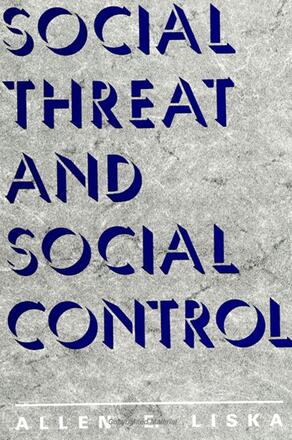
Social Threat and Social Control
Alternative formats available from:
Description
This book examines the conflict theory of social control, particularly the threat hypothesis. It asserts that deviance and crime control are responses to social threats such as criminal acts and riots, and to people perceived as threatening such as minorities and the unemployed. The authors use threat hypothesis to organize the diverse literatures on social control, use new data to resolve crucial issues, and integrate current perspectives to develop the threat proposition. They analyze patterns of deviance and crime control ranging from fatal or lethal controls such as state executions or lynching, to physical restraint such as imprisonment, to beneficient controls such as mental health hospitalization and even welfare.
Allen E. Liska is Profesor of Sociology at the State University of New York, Albany. He is the author of The Impact of Attitudes on Behavior: The Consistence Controversy and Perspectives on Deviance. He is the coeditor of Theoretical Integration in the Study of Deviance and Crime: Problems and Prospects, also published by SUNY Press.
Reviews
"I agree with Liska's assessment of the state of knowledge on coflict and social control, and believe that his integrative approach is well suited to a resolution of problems in this area. Propositions generated from conflict perspectives are especially relevant to an understanding of shifts in levels of social control. Consideration of propositions that have developed out of the broad-based literature of the field will provide a clearer understanding of the linkages among control emanating from different institutional arenas. I think that Liska is on to something very important in this regard. " — Ronald A. Farrell, University of Nevada, Las Vegas